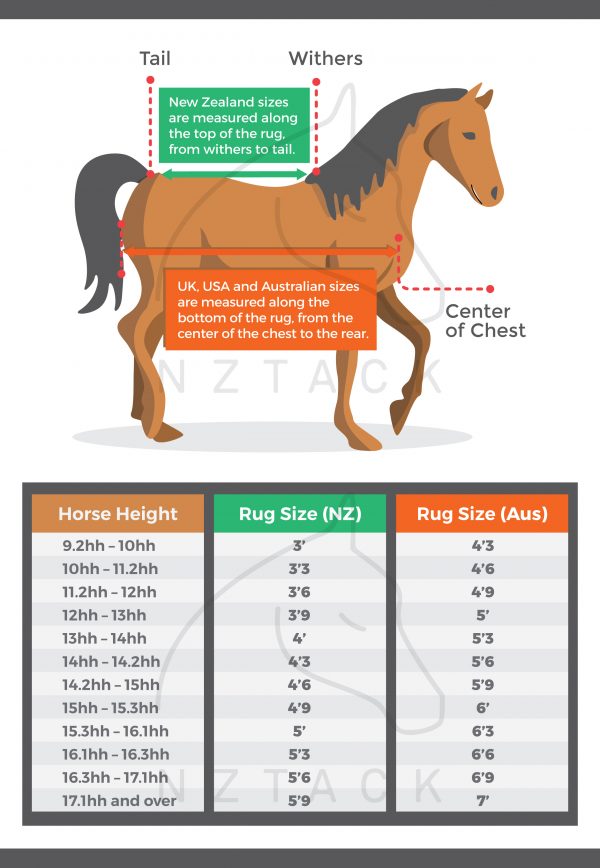Learn how to fit your weatherbeeta rug to your horse correctly to prevent rubbing and discomfort getting the perfect fitting rug is vital to keep your horse comfortable protected and performing at their best step 1.
How to fit a horse rug correctly.
Also a rug that s too big may slip causing discomfort and can be dangerous.
A poorly fitted rug can cause discomfort and rubbing so it is important to fit your weatherbeeta rug correctly.
By bee primrose submitted on december 30 2009.
If you re not sure what you should be checking follow our five simple points to ensure your horse is comfortable and safe.
Spread the folded rug out once it s in place on the horse.
The rug should fit well over the withers and the shoulders so that the horse can move freely without the rug slipping back.
When fitting a rug on your horse it is easy to get into the habit of just throwing it on and having a look every now and again however it is sensible assess the horse s rugs and check that they are comfortable with your estimations.
A rug that fits correctly should cover your horse s body well.
First lay your weatherbeeta rug over your horse s back.
Fitting horse rugs correctly.
First lay your weatherbeeta rug over your horse s back.
There should be no tightness or it will rub your horse s shoulders and withers.
The rug should cover the horse s entire body from their withers all the way back to their rear.
When it comes to fitting a rug it s important to understand how rug sizes work the right rug in the wrong size won t be able to do its job properly.
The straps should be tight enough to hold the rug in place but not so tight that they cause the rug s shape to distort on the horse s back.
Unfold the rug on the horse s back.
Rugs are usually sized in three inch increments.
It is necessary when buying and using your outdoor rugs to bear the following points in mind.
Fitting a horse rug correctly how and why.
If your horse has never worn a rug before you may need someone to help hold him while you make adjustments.
It should hang a few inches below the horse s belly while still allowing the animal to move freely.





























